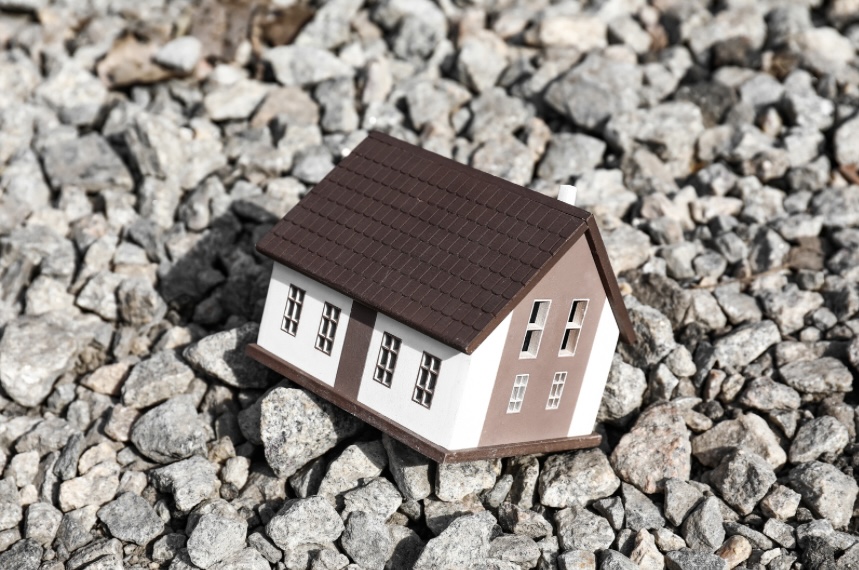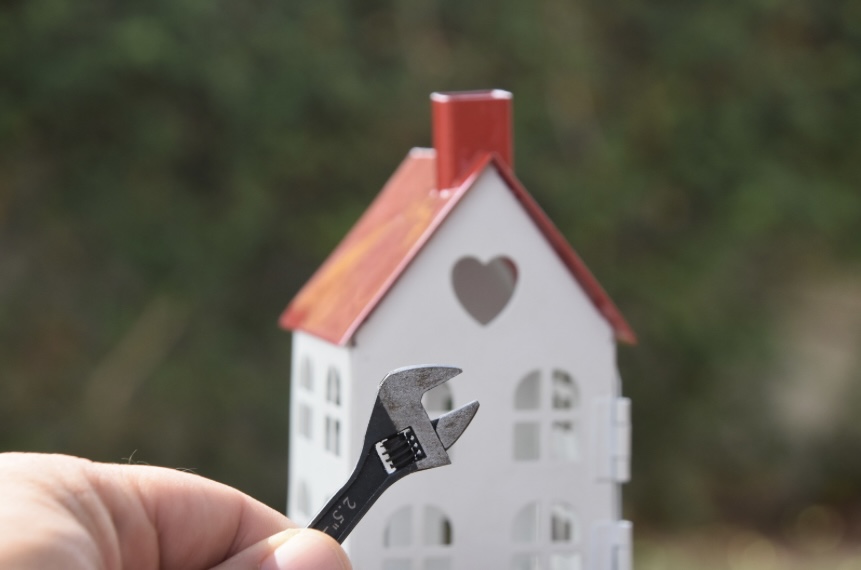Are you interested in investing in pre-owned property in Thailand, but unsure where to begin?
This article provides essential guidelines to lead your investment to success from property selection tips to risk management strategies.

Features and Appeal of Thailand’s Pre-owned Property Market
Why is Thailand’s property so popular amongst foreign investors?
This can be attributed to Thailand’s stable economic growth and strong demand for real estate, in urban areas, particularly Bangkok and the surrounding areas. Although the country experienced the temporary setback due to the Corona disaster in 2020 has since been on a recovery path showing its resilience and is expected to grow over the medium- to long-term.
Another reason is its high standard of living that Thailand offers. Everything you need to have the usual life such as a large selection of European restaurants, supermarkets and hospitals with English language services. Thailand is also known as `the Land of Smiles’ and most people are friendly, making it a favored a destination not only for investment, but also for future migration.
Why invest pre-owned property?
Buying pre-owned properties offer several advantages such as potential for appreciable returns compared to brand-new ones and relatively affordable prices with excellent locations and facilities.
Increasing property values through the expansion of rail infrastructure
The rail network in Bangkok is expanding at a rapid pace. This has led to a significant increase in the property values around the train stations, affecting how you chose a pre-owned property.
Launching the new lines and the new stations dramatically improves the convenience of the surrounding areas. Especially the property values increase significantly around new BTS Skytrain and MRT stations. Consider the location carefully taking into account the planned expansion of these lines when choosing a property.
What You Need to Know When Choosing a Property

①Location
The location of the property is crucial as the price range and the potential vary greatly depending on the area.
Having good transportation accessibility gives a significant impact on property values. Properties within walking distance to BTS(Skytrain) stations and MRT stations offer high demand, especially in the central areas such as the Sukhumvit area and Silom district. Consider factors such as proximity to supermarkets, schools, shopping centers, hospitals and entertainment facilities as they can affect the value of your investment over the long term.
In addition, the expansion of the rail infrastructure must also be taken into consideration. The areas where the new rail lines as well as large-scale commercial facilities planned to be developed are expected to be on a rise in value in the future.
For example, properties in the Sukhumvit area known for its convenience and well-developed are expensive but in stable demand. On the other hand, there are many relatively inexpensive properties in emerging areas in the suburbs, where future development can be expected. You can still find pre-owned properties at relatively affordable prices in the area east of On Nut Station, where the BTS Sukhumvit Line extension has been under construction. Bang Na area in the suburbs of Bangkok is attracting attention with the opening of a new airport line.
The Value of Properties in these areas are expected to rise rapidly once the new lines become operational, an early investment has great potential to pay off.
However, the areas that are slated for excessive development are at risk of falling prices due to oversupply. It is essential to carefully assess development trends in the areas.

②Structure and Seismic Resistance
Special attention should be paid to the structure and earthquake resistance of the building. It is important to confirm the safety by examining the age of the building and the materials used. Generally concrete buildings are more durable. Many buildings are steel-framed, but they are prone to rust in Thailand’s humid climate requiring regular maintenance checkups thus checking the maintenance status is necessary.
High-rise condominiums built in recent years are often designed to have a certain level of earthquake resistance. The track record and reputation of the developer are also important factors to consider.
Inspect details such as the condition of exterior walls and ceiling of window frames. Poor condition of these can lead to flooding during rainy seasons and reduced HVAC efficiency. It is a good idea to request a professional building inspection if possible.
Moreover, flood risk should also be considered. Although waterproofing measures have been strengthened in many buildings since the 2011 floods, special attention should be given to properties with low-rise floors or underground parking. Hazard maps can be used to confirm flood risk of such areas.

③Evaluating Management Status and Repair History
It is important to have a detailed property inspection. Carefully assess common areas and facilities on-site such as entrances, elevators, corridors, swimming pools, and other facilities. The cleanliness and functionality of these spaces reflect the management company’s quality. Additionally, confirm the availability of security systems.
Thoroughly examine the management status and the repair history of vital building components such as plumbing, electrical systems, and exterior walls. Well-maintained properties tend to hold their value over time.
Find out whether the management fee is effectively used, appropriate amount of management fees is collected. If management fees are too low, there is a possibility of insufficient funds when major repairs are needed in the future.
The transparency and soundness of the management association is important as it greatly affects the value of the property in the long term. The quality of service in Thailand varies greatly depending on the management company, so choosing a reliable one is essential.
Here are key points to confirm:
| Checkpoint | Point to confirm |
| Common Areas | Cleanliness, Operational condition of facilities |
| Security | 24h Security system, Installation of cameras |
| Management Fees | Appropriateness of amount, transparency of use |
| Repair History | Status of major repairs, future plans |
| Management Association | Transparency, soundness of management |
Keep these points in mind to minimize risks when choosing a pre-owned property. As well, seeking advice from a local real estate expert is highly recommended to ensure a safe investment. Carefully consider you needs and your preferences in order to find the right property accordingly.
Risk Management for Investing in Preowned Property in Thailand
While there is great potential, understanding and managing risks is the key for a successful investment.
① Selecting a Developer
Focus on the track record and financial stability of developers. Major developers in Thailand such as Sansiri, Ananda, and L.P.N. have extensive experience and a stable financial base.
When considering smaller developers, conduct thorough research into their past
projects, reputation, and financial health. A developer with experience dealing with foreign investors can help alleviate communication issues.
② Legal Risks and Ownership Confirmation
Understanding legal risks and ensuring clear ownership is essential.
Thai law restricts foreign ownership of land. Generally, foreign investors can only purchase condominium interests. Furthermore, Under Thai law, foreigners can own up to 49% of the total floor area of all units in a condominium.
You should pay special attention to the following points
– Verifying title deed (Chanote)
– Confirming building permits
– Checking the status of property tax and other tax paid
– Confirming no mortgages or no security interests exist
– Percentage of foreign owner ship of the entire condo
Hiring a reputable lawyer or real estate professional familiar with Thai law is highly recommended to conduct the process with the legal aspects. Since the process of transferring ownership is complex and important, in which mistakes cannot be tolerated.
There have also been reports of fraud and misconduct related to real estate transactions in Thailand. For example, there have been cases of forged title deeds and sales of non-existent properties. It’s possible to avoid these common risks by hiring professionals.
③ Managing Taxes and Fees Post-Purchase
The real estate tax system in Thailand changes frequently. Stay informed about the latest
tax and fee structures, and pay them promptly to avoid future issues.
④ Exchange Rate Fluctuations
Keep abreast of currency fluctuations, as they significantly impact investment profitability. The Thai baht has been relatively stable, but global economic and political shifts can cause sudden changes. Therefore, it is wise to consider ways to hedge currency risk in advance. For example, you can diversify your assets in multiple currencies or utilize foreign-exchange reserves.
⑤ Economic Trends
The economy of Thailand is heavily relying on manufacturing and tourism thus the trends in these sectors will affect the real estate market.
Here are important economic indicators to monitor:
– GDP growth rate
– Inflation rate
– Policy interest rate
– Unemployment rate
– Trends in foreign direct investment (FDI)
Understanding these trends helps you anticipate changes in real estate demand. For example, a continuous increase in GDP growth will likely lead to an increase in real estate demand.
Increased tourism can boost short-term rental demand, while industrial growth can raise long-term property values. Also, pay attention to government policies like “Thailand 4.0” and large-scale infrastructure projects which may have a significant impact on real estate values in specific areas
Taking a long-term view of investments is the key to mitigating the risk of currency and economic volatility. It is important to evaluate the performance of your investments over a long-term span of 5 or 10 years, rather than being swayed by short-term fluctuations. At the same time, conducting regular market analysis and reviewing of your investment strategy will allow you to respond flexibly to the changing economic environment.
Conclusion Investing in pre-owned property in Thailand has become an attractive option due to the stable economic growth and expanding railroad infrastructure. However, careful property selection and risk management are crucial. Assess locations, structures, and management condition thoroughly. Choose reliable developers and management companies, and stay vigilant about legal risks and currency fluctuations. A long-term perspective, coupled with regular market analysis, will help you navigate the dynamic real estate market effectively. Ready to embark on your Thai real estate journey and savor the rewards?
